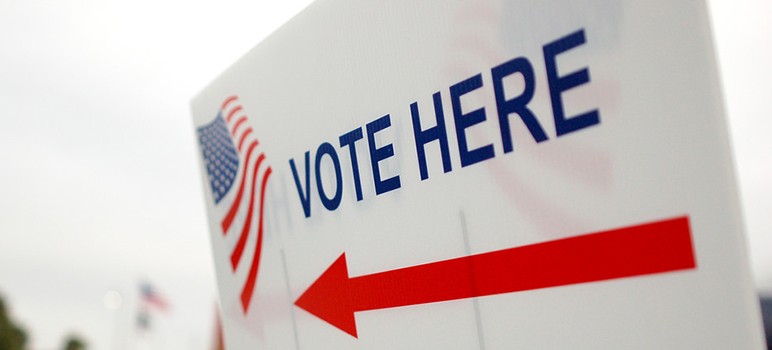It’s become a key part of the big business playbook: If an industry doesn’t like a California law, it uses the referendum process to try and overturn it.
Already on the November 2024 ballot: the oil industry qualified a ballot measure to kill a law that bans new oil wells near schools and neighborhoods, and the fast-food industry qualified another to wipe out a law creating a council to regulate fast food wages.
Those referenda can only qualify by getting enough signatures from voters, which some industries pay people to do. But as Culver City Assemblymember Isaac Bryan and environmental and labor groups pointed out Monday, the signature-gathering process can be rife with deception.
At a virtual press conference, Bryan, chairperson of the Assembly elections committee, showed videos of paid signature gatherers purportedly giving incorrect information about the referenda to voters — in some cases, the exact opposite message of what the ballot measure would do. That’s why he introduced Assembly Bill 421, which seeks to bring more accountability and transparency into that process.
The bill would require more disclosure into who is funding the effort, and a number of steps to help voters distinguish paid signature gathering, such as having petition circulators register with the Secretary of State’s office, undergo training and wear a badge with an ID number, and use different-colored paper from volunteer signature gatherers. To repeal a law within two years of enactment, the bill would also require that at least 10% of signatures be obtained by unpaid volunteers.
Assemblymember Bryan said: “Blatantly dishonest tactics are being used to manipulate and mislead voters, putting more obstacles in the way of communities working to protect the environment, improve the health of our children, and give workers a fair shot.”
But the Republican vice chairperson of the Assembly elections committee quickly tried to quash the bill.
Assemblymember Tom Lackey of Palmdale added, in a tweet: “This is a blatant attempt to disenfranchise Californians & help out partisan special interest backers. Why can’t #CALeg trust voters to make up their minds?”
The bill would also change the way that referendum questions are presented on the ballot. Currently, a “yes” vote is to uphold the law and a “no” vote is to repeal the law. But the bill’s backers say that leads to confusion, and under the new legislation, the meaning of “yes” and “no” votes would be reversed.
As CalMatters’ Ben Christopher and Jeanne Kuang explain, even when referenda fail, they can still pay off for industries because the laws go on hold once the measures qualify.
While the bill seeks to make changes to the direct democracy process, it wouldn’t alter language in the Constitution, so it wouldn’t need to be approved by voters, Bryan said.
Businesses are also trying to block legislation before it even gets through the Legislature. After a slowdown during the pandemic, money spent lobbying state officials rose in 2022 to $444 million, according to data from the Secretary of State’s office.
The biggest spenders last year, as reported by The Sacramento Bee, are familiar: The Western States Petroleum Association, representing the oil industry, with $7.3 million, up from $4.4 million in 2021, and the International Franchise Association, representing the fast food industry, at $6.1 million, up from only $83,000 in 2021. Sameea Kamal is a reporter with CalMatters.


Just an Observation,
Why isn’t there any polls reporting on the fast food labor ballot measure?
It would be informative.
There will be no businesses left in CA soon, so there will be no labor either. Just freeloaders.